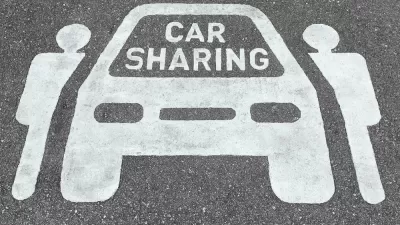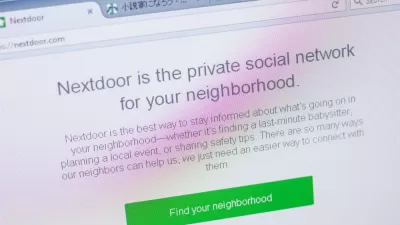Ride share websites and mobile apps take the guesswork out of finding a ride and move social networking offline and onto the open road, fueling a revival of car-pooling, reports Mickey Meece.
It seems like just yesterday that The New York Times relegated car pools to the dustbin of history, along with disco and hitchhiking. Car-pooling, or ride sharing, has seen its ups and downs in popularity in the recent past, and has been under threat by the convenience that comes with owning and driving your own car. But, as Meece notes, ride-sharing and car-pooling, "are having a moment." So what's changed in the past year?
"'It's been a tough sell in the U.S. for a long time,' said David Burwell, director of the energy and climate program at the Carnegie Endowment for International Peace. What is different now, Mr. Burwell said, is the advancement of digital technology and social networking, 'which removed a significant amount of barriers.'"
With a laundry list of ride share sites now available, it seems that people are coming around to the idea again. Social media sites have become such an integral part of people's daily lives that it's no wonder people have started using them as decision-making tools. Meece claims that safety concerns, too, are being satisfied by the requirement of some of these sites to log in through Facebook, which allows users to conduct their own background checks on potential passengers. Ridejoy, for example, "plans to introduce digital identification verification and background checks to its other safety mechanisms, which include Facebook integration, user reviews and references, plus a safety checklist sent to users."
These ride share sites and apps are another way of "taking online social networks offline," allowing virtual socializing to move into the real world. "If car-pooling is done right," said Carpooling.com chief executive Markus Barnikel, "you'll likely have a better sense of the person driving a ride-share vehicle than you do a bus or taxi driver, and can even forge a relationship with them."
FULL STORY: Car-Pooling Makes a Surge on Apps and Social Media

Study: Maui’s Plan to Convert Vacation Rentals to Long-Term Housing Could Cause Nearly $1 Billion Economic Loss
The plan would reduce visitor accommodation by 25,% resulting in 1,900 jobs lost.

North Texas Transit Leaders Tout Benefits of TOD for Growing Region
At a summit focused on transit-oriented development, policymakers discussed how North Texas’ expanded light rail system can serve as a tool for economic growth.

Why Should We Subsidize Public Transportation?
Many public transit agencies face financial stress due to rising costs, declining fare revenue, and declining subsidies. Transit advocates must provide a strong business case for increasing public transit funding.

How Community Science Connects People, Parks, and Biodiversity
Community science engages people of all backgrounds in documenting local biodiversity, strengthening connections to nature, and contributing to global efforts like the City Nature Challenge to build a more inclusive and resilient future.

Alabama: Trump Terminates Settlements for Black Communities Harmed By Raw Sewage
Trump deemed the landmark civil rights agreement “illegal DEI and environmental justice policy.”

Dear Tesla Driver: “It’s not You, It’s Him.”
Amidst a booming bumper sticker industry, one writer offers solace to those asking, “Does this car make me look fascist?”
Urban Design for Planners 1: Software Tools
This six-course series explores essential urban design concepts using open source software and equips planners with the tools they need to participate fully in the urban design process.
Planning for Universal Design
Learn the tools for implementing Universal Design in planning regulations.
City of Santa Clarita
Ascent Environmental
Institute for Housing and Urban Development Studies (IHS)
City of Grandview
Harvard GSD Executive Education
Toledo-Lucas County Plan Commissions
Salt Lake City
NYU Wagner Graduate School of Public Service





























